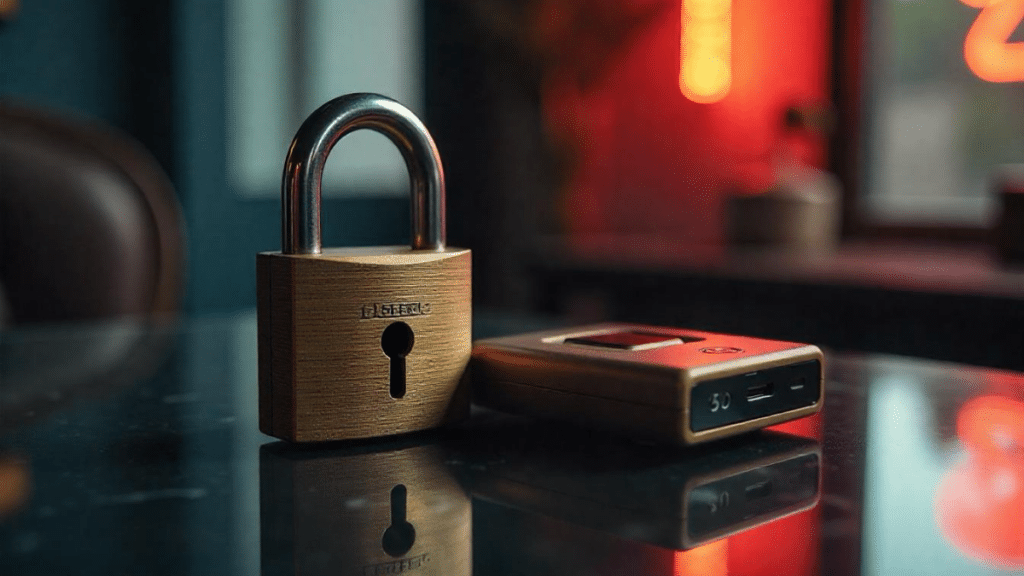The evolution of lock systems has introduced homeowners and business owners to a variety of options for securing their properties. While traditional locks have been around for centuries, digital locks are now making a significant impact in the market. Choosing between traditional and digital locks depends on multiple factors, such as security needs, convenience, and budget. In this article, we’ll explore the differences between these two types of locks, providing insights to help you make an informed decision.
No matter which type of lock you choose, a professional locksmith can assist you in installing, maintaining, or repairing your security system. Whether it’s a mechanical issue with a traditional lock or a technical malfunction with a digital one, locksmiths play a crucial role in ensuring that your property remains secure.
Traditional Locks: Reliability with Familiarity
Traditional locks, also known as mechanical locks, have been the cornerstone of security for a long time. These locks function using physical keys and are widely recognized for their simplicity and reliability. Some of the most common types of traditional locks include deadbolts, padlocks, and mortise locks. These locks can be found in both residential and commercial properties, offering varying levels of security.
One of the primary reasons why traditional locks continue to be popular is their time-tested reliability. Many people prefer them because they are familiar and easy to use. Additionally, traditional locks are often less expensive than digital alternatives, making them a popular choice for budget-conscious property owners.
Locksmiths are frequently called upon to handle traditional locks, whether it’s for installation, rekeying, or emergency lockout situations. Since traditional locks require physical keys, it is common for homeowners to misplace them, leading to lockouts or the need for replacement keys. In such cases, a professional locksmith can provide quick and efficient solutions.
However, traditional locks have their drawbacks. Physical keys can be lost or stolen, and older lock designs may be vulnerable to picking or bumping techniques used by intruders. While a locksmith can install high-security traditional locks to minimize these risks, they may not offer the same level of security as some digital locks.
Digital Locks: The Modern Approach to Security
In contrast, digital locks are the new-age solution for property security. These locks rely on technology rather than physical keys, utilizing keypads, biometric scans, or smartphone applications to unlock doors. Digital locks provide a higher level of convenience, as users no longer need to worry about losing or forgetting keys. Instead, access can be granted through a PIN code, fingerprint, or even a mobile device.
One of the standout benefits of digital locks is their enhanced security features. Many modern digital locks offer multi-factor authentication, ensuring that only authorized individuals can gain access. Some locks also include remote monitoring capabilities, allowing property owners to track entry logs and control access from anywhere using their smartphones.
Despite their advanced features, digital locks may require a locksmith for installation and occasional maintenance. Just like traditional locks, digital locks can experience technical issues or malfunctions, particularly if the batteries die or if the system’s software needs an update. In these cases, a skilled locksmith with experience in digital security systems will be needed to troubleshoot and resolve the issue.
Digital locks come with their own set of challenges. They are often more expensive than traditional locks, and the reliance on technology means that any malfunction or hacking attempt could compromise security. While a locksmith can ensure the proper functioning of a digital lock, the added layer of technology introduces complexities that traditional locks do not have.
Conclusion: Which Lock is Right for You?
Both traditional and digital locks offer unique advantages and potential drawbacks. Traditional locks that have been here for centuries are affordable, easy to use, and widely trusted, while digital locks offer advanced security features and convenience. Ultimately, the choice depends on your security needs, budget, and lifestyle preferences. For those who prioritize simplicity and cost-effectiveness, traditional locks may be the way to go. On the other hand, if convenience and cutting-edge security are top priorities, a digital lock could be the better option.
